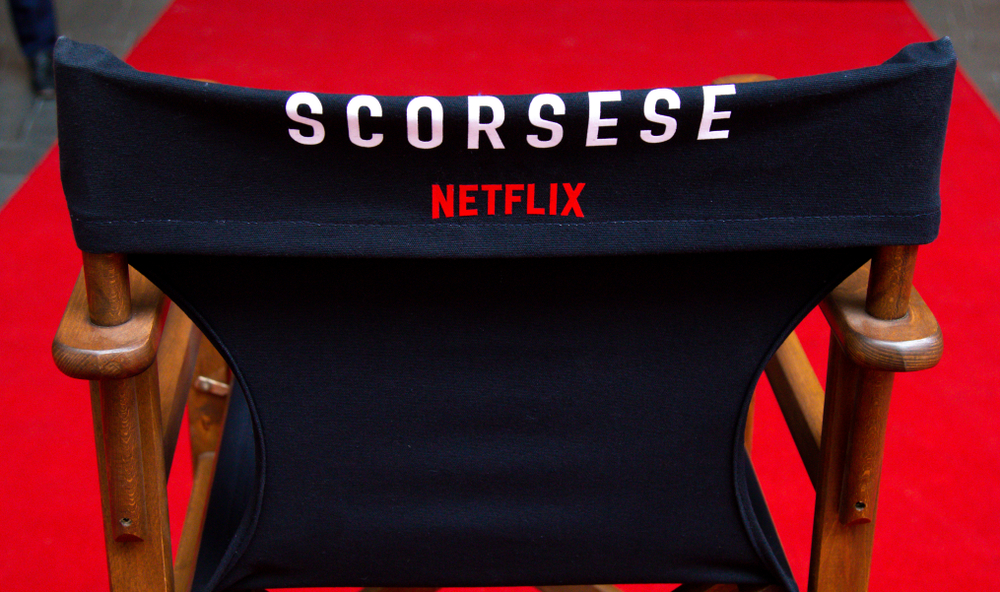Don’t listen to Martin Scorsese, the Netflix algorithm is your friend
While we can’t dispute his stance on the ‘art of cinema’, Scorsese’s criticism of AI is muddled


There’s a great crime documentary on Netflix at the moment about the efforts to catch the Californian serial killer Richard Ramirez, called ‘Night Stalker’. This was recommended to me by both my partner and Netflix, because they know me so well.
There is a big difference in where these two recommendations originated, however. My partner also likes true crime stories, so her suggestion also suits her viewing needs. Netflix, on the other hand, has taken my data, fed it through an algorithm and offered me options because it knows I hate having to search through its entire back catalogue of ‘content’.
I use that word with trepidation as it has been revealed that the great director Martin Scorsese doesn’t like it. In an essay written for the March edition of Harper’s Magazine, Scorsese said he feels it’s a business term for “moving images” that have nothing to do with the art of filmmaking and the theatrical experience.
“If further viewing is ‘suggested’ by algorithms based on what you’ve already seen, and the suggestions are based only on subject matter or genre, then what does that do to the art of cinema?” the great auteur opined.
There’s a simple answer here: It enhances it. It recommends more films and TV shows it thinks you will like in much the same way a friend would, only it has a bigger library to draw from. Criticising algorithms used in this way doesn’t sit well with me as it feels like an ill-informed attack on a technology that can be immensely helpful.
I am an avid user of the ‘Watch again’ column on Netflix, not because I don’t like or understand cinema, but because I bloody love it. Part of the beauty of a film is it can relate and speak to you directly, and ultimately stay with you for life. That’s essentially how art lives on, whether you refer to it as ‘content’ or not. So instead of going to the cinema to see something new (which I can’t currently do), I’m at home embracing algorithmic decision making that thinks I might like to rewatch ‘The Wolf of Wall Street’.
That’s not to say that all algorithms are used to the benefit of humanity, or at least the alleviation of boredom. Algorithms that attempt to influence us are often hidden within a service and, to be brutally honest, they are a digital plague. They’re used on social media sites to tailor news feeds for each individual user, creating information bubbles and echo chambers. At best, it means you’re going to get many more cat memes and K-pop tweets in your feed; at worst, it’s fertile ground for conspiracy theories and can lead users down a twisted path to extremism. Whatever the platform, the main goal is to keep users engaged for as long as possible, no matter the consequences.
Get the ITPro daily newsletter
Sign up today and you will receive a free copy of our Future Focus 2025 report - the leading guidance on AI, cybersecurity and other IT challenges as per 700+ senior executives
RELATED RESOURCE

In a sense, the genre of algorithms used by social media are like kindling; it just needs a strong flame to set it off. Take, for instance, the case of Irish businessman Gavin Duffy who is currently suing Facebook. His image was used in a cryptocurrency investment scam that was advertised on the social network. The story took a morbid turn midway through 2020 when adverts began claiming Duffy had died, which trended and caused lots of distress for his family and friends.
The ability to falsify someone’s death and spread it around the world in an instant is a horrifying reality we live with. But I tell you what, if Netflix recommended a documentary about it, I would bloody well watch it.
Bobby Hellard is ITPro's Reviews Editor and has worked on CloudPro and ChannelPro since 2018. In his time at ITPro, Bobby has covered stories for all the major technology companies, such as Apple, Microsoft, Amazon and Facebook, and regularly attends industry-leading events such as AWS Re:Invent and Google Cloud Next.
Bobby mainly covers hardware reviews, but you will also recognize him as the face of many of our video reviews of laptops and smartphones.
-
 Bigger salaries, more burnout: Is the CISO role in crisis?
Bigger salaries, more burnout: Is the CISO role in crisis?In-depth CISOs are more stressed than ever before – but why is this and what can be done?
By Kate O'Flaherty Published
-
 Cheap cyber crime kits can be bought on the dark web for less than $25
Cheap cyber crime kits can be bought on the dark web for less than $25News Research from NordVPN shows phishing kits are now widely available on the dark web and via messaging apps like Telegram, and are often selling for less than $25.
By Emma Woollacott Published